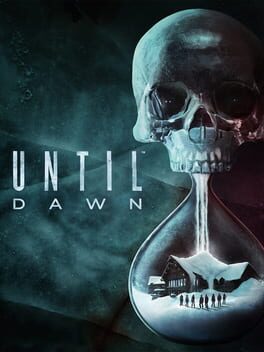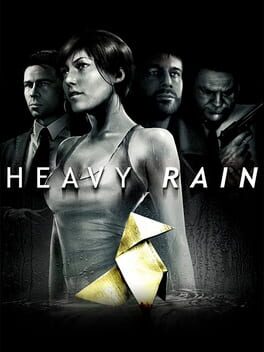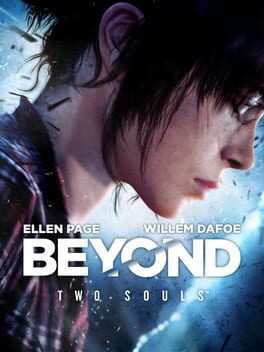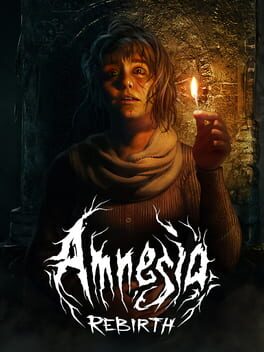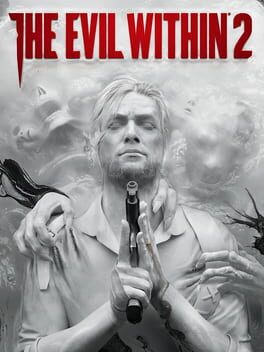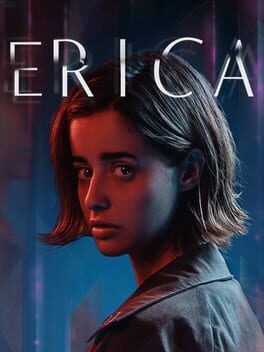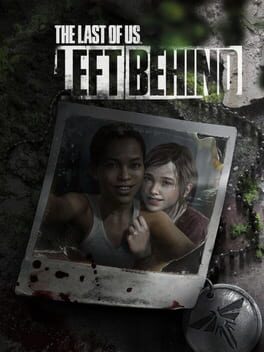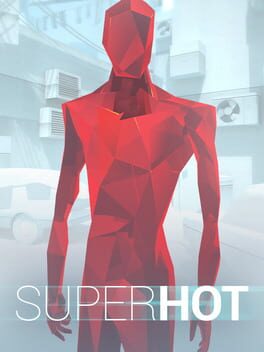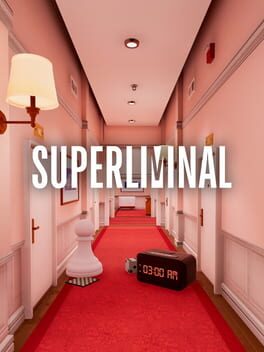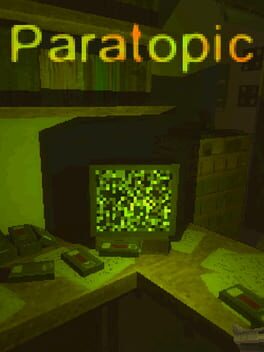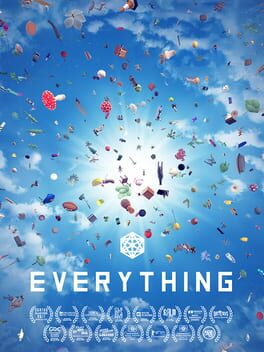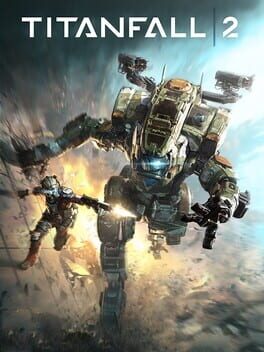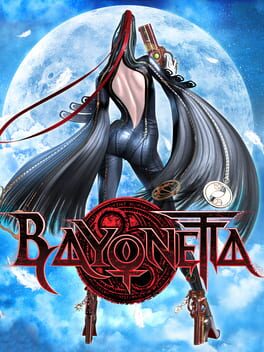pulpfuertes
A game to make Tobe Hooper and Lucio Fulci proud. Lo-fi VHS swamp aesthetics, grotesque body horror and musty set dressing all married with uncomfortably clunky mechanics. It’s such a toxic relationship but all things considered makes for one of the most nerve wracking and accomplished horror experiences I’ve had in a minute. Didn’t give as much credit to this before as I should have even if it still fights with minor third act deflation and rough moments of stuffy first person awkwardness (hopefully will be straightened out in Village). Like pretty much every RE the sense of helplessness gives way to the player’s imminent empowerment through powerful weaponry by the end so I wasn’t as annoyed with the ship/mine sections this time around. In the end, I cannot deny that it’s invigorating to see the franchise finally grapple with what it means for a resident to truly be “evil” in a metaphorical sense, even with the ending somewhat missing out on the punchline with its flagrant optimism. Here, Americana is corrupted and manipulated by capitalist overlords, the rural family unit ruptured and grossly replicated, and any semblance of safety stripped. It’s all such seat-shifting excitement that it’s kinda dazzling that it works at all. While it may miss out on being a masterwork on the likes of some of the other entries, Biohazard is nonetheless a fruitful horror game that reminds us how banally unsettling an empty house really is and how terrifying it feels to know that you’re actually not alone and the dread that comes with seeing just how far down the rabbit hole goes. Good shit.
2015
Aggressively 2015 if that makes any sense. There's few sequences in modern horror more iconic than witnessing Hayden Panettiere, bearing only a towel and a dash of courage, fight off a masked clown lunatic in a labyrinth-esque lodge, consistently escaping his clutches by a hair only to face yet another obstacle in the way. The choice-based gimmick lends itself to fascinating philosophical readings but what interests me the most is how the game's overall framework of being a playable slasher/creature feature deconstructs cinematic language and reworks it to fit with how a player's logistical instincts interprets environmental clues and moments of empathy allowing for complete interactivity and engagement with their choices. There are parts of this that are absolutely excellent even if its first half struggles to maintain footing. Its stark winter aesthetic and clever use of fixed angles traps the player (and the characters they play) in an almost oppressive box of looming mortality. The developers execute this with intensely calculated and visceral visual control, cleverly stacking jump scares, eerily washed out lighting, and tonal shifts with ease. The second half didn't come to be as jarring as before because of how seamless the character progression was and how fluidly everything moves along. When this ensemble transformed from being insufferable and needlessly cruel to being some of the most strong willed protagonists I've ever seen in the genre, it feels like a miracle at work. Some of the stuff here remains as effective as I remember although performance issues such as awkward character model gestures and janky frame rate did hamper the immersion. I'm also not much of a fan of the recaps between episodes but there's a special charm to this game's dated nature. iI's something I'll probably end up returning to again and again in the future until something dethrones it as the prime choice-based horror adventure.
2010
A glorious and genuine example of video game camp. So earnestly proud of its narrative self-seriousness, technical innovation, and dedication to a grim atmosphere that it balloons into parody. It couldn't have gone any other way with how the medium was at the time and in ways its cult status is entirely attributed to its dated ridiculousness. Always captivating even if the Norman Jayden chapters grind the pacing to a screeching halt almost every goddamn time. Shame about how the majority of the game plays out because for the first two or so hours there is a touching dynamic between Shaun and Ethan that I found palpable and frankly real. There's a mundanity to how Cage expresses the grief here that moved me. All the button prompts to drink orange juice and prepare weirdly animated pizza dinner for your son felt properly laborious in these sections and accentuated the deep sadness that underscores the game's tone (also in part due to the gorgeously varied score). And then the rest of the game happens and the entire thing devolves into trashy B-movie pulp territory. I like it that way though! There's not many other neo-noir games out there with such passion to be this wholly unbalanced and narratively ill-fated with a straight face.
2013
While the scrambled narrative is more ambitious and dramatically effective than Heavy Rain that fact also makes this all the more dull to power through even if it has a semblance of experienced maturity in how it handles its characters and storyline. Trade-offs, I guess. It loses the cornball excitement of Heavy Rain but gains one of my favorite protagonists in video games with Elliot Page's Jodie, who plays the role with such intimate rawness and emotional range that despite the game's overwrought melodrama left me near tears multiple times throughout from his performance alone. It's a character that's properly lived in and the game gives plenty of development (albeit perhaps a bit too schematic for my liking) for her to be feel fleshed out. She stands as a refreshingly flawed, vulnerable, but empowered PS3-era icon and I admire Cage's commitment to dressing the structure with emotional stakes rather than cheap thrills. The game certainly indulges itself in more ways than one with said structure, with the majority of child Jodie's chapters feeling superfluous. I wish the game was more episodic hijinx such as "Homeless", "The Dinner" and "Navajo", which showcased the game's strengths as it develops Jodie through her interactions with others rather than just feeding the player forced chapters where we actively partake in the trauma she underwent as an adolescent ("The Party" and "Like Other Girls" are eyerollingly OTT). Dafoe's Nathan is also woefully underdeveloped but an interesting foil to the game's thematic exploration of the afterlife and the spiritual connections that keep these characters tethered to sanity. Wish it went farther with these ideas but as a whole this was more focused on Jodie than anything else so in that I appreciate what's here despite how shaky the end product ended up being. I cannot deny the things that work and the moments that do hit are among Cage's most endearing as a visual storyteller.
2020
Colonialism and its cyclical bloodshed, dying civilizations and crumbling empires, eternal darkness and the suffering that exists within it, primitive regression, fertility and motherhood. Amnesia: Rebirth runs the symbolic and thematic gamut of fragmented ideas that tie in to the over arching theme of insanity in its different connotations; moral and ethical, mystic and cosmic, inner and outer and the intertwining of all these.
Had a mental flash of this game before going to bed and now here in the dark I can’t stop thinking about it. It’s something that’s only going to continue growing in my mind and I believe public stature over time. Let down by the expectations of those either looking for another Soma or another Amnesia, this forgoes both the existential dread of the former and the stream-ready scares of the latter in lieu of something slower and more intimate in scale. It is unfortunately shortsighted at times in regards to its match mechanic which felt like a cheap way to drum up tension in an already effectively claustrophobic and fear inducing setting but it nonetheless contributes to the game’s endlessly frantic pacing. It is exhausting to play this but seeing as we are playing a pregnant woman (Tasi, stunningly performed by Alix Wilton Regan) it may be entirely the point for it all to feel so laborious. And how invigorating to see something so indebted to its main character and her feelings and reactions to the world around her. The internal monologue is at once anxiously realistic as it is frequently silly. What I love about this game is how it sets itself up so slowly and yet plunges the player head first into a plethora of heady concepts and outlandish imagery. While it may not all seem cohesive at first, it is in the patient unveiling of subdued details that Frictional Games’ mastery at world building shines through. This is probably their most confident effort yet even if some age old problems slip through the cracks (janky controls and some dated graphics). It didn’t quite hit me as hard as Soma initially did but the finale where the answers are eventually found and the haunting final shot (“Iconoclast” ending) has propelled this into special territory for me. Despite my doubts that gameplay and story elements of the game would fully come together or function to the best ability, I was won over by how streamlined and varied the overall experience was. Not particularly scary, but had my heart leaping out of my chest through pure intensity. Many times I thought I was doomed, only for that sliver of hope to appear. It is easy to feel maddened by this loop but it truly is Tasi that keeps it all grounded in bittersweet optimism.
Had a mental flash of this game before going to bed and now here in the dark I can’t stop thinking about it. It’s something that’s only going to continue growing in my mind and I believe public stature over time. Let down by the expectations of those either looking for another Soma or another Amnesia, this forgoes both the existential dread of the former and the stream-ready scares of the latter in lieu of something slower and more intimate in scale. It is unfortunately shortsighted at times in regards to its match mechanic which felt like a cheap way to drum up tension in an already effectively claustrophobic and fear inducing setting but it nonetheless contributes to the game’s endlessly frantic pacing. It is exhausting to play this but seeing as we are playing a pregnant woman (Tasi, stunningly performed by Alix Wilton Regan) it may be entirely the point for it all to feel so laborious. And how invigorating to see something so indebted to its main character and her feelings and reactions to the world around her. The internal monologue is at once anxiously realistic as it is frequently silly. What I love about this game is how it sets itself up so slowly and yet plunges the player head first into a plethora of heady concepts and outlandish imagery. While it may not all seem cohesive at first, it is in the patient unveiling of subdued details that Frictional Games’ mastery at world building shines through. This is probably their most confident effort yet even if some age old problems slip through the cracks (janky controls and some dated graphics). It didn’t quite hit me as hard as Soma initially did but the finale where the answers are eventually found and the haunting final shot (“Iconoclast” ending) has propelled this into special territory for me. Despite my doubts that gameplay and story elements of the game would fully come together or function to the best ability, I was won over by how streamlined and varied the overall experience was. Not particularly scary, but had my heart leaping out of my chest through pure intensity. Many times I thought I was doomed, only for that sliver of hope to appear. It is easy to feel maddened by this loop but it truly is Tasi that keeps it all grounded in bittersweet optimism.
2017
A lot of dumb zombie bullshit for what amounts to the custody battle for the ages! Anyways, so much of this contains strong, superficially creative threads but overall lacks the off-kilter direction and wonky tone that defined the unforgettable unpredictability of the previous entry; despite its detrimental flaws that is. However this sequel definitely feels like an attempt to gradually parse out the downright inscrutability of the first while remaining accessible enough for the masses. It is actually quite successful at that for the most part as it adopts a uniquely open world survival horror mold. It is unfortunate that much of the material that fills this mold is more of the same shit you see in most other AAA titles, but that this tries something bold from the get is interesting. Its linear portions are propulsive and slowly progressing through the open areas had its rewards. Its a shame that this gameplay loop runs its course by the midway point (you'll know exactly when lol) and by then you still have at least another eight hours of story to trudge through. This beast is just entirely too long. All in all though it remains a AAA horror blockbuster devoted to actual ideas and character development and world building so for me, that is enough to warrant a single playthrough even if it relies too much on this bland functionality over the radical artistry of the first. I doubt I'll ponder on it much after a few days but I'd recommend it to those that need something competently creepy and gratifying but unlike its predecessor, not completely oppressive and unapproachable. It's a fun time waster.
2019
Interested in what Naughty Dog could accomplish with better structured and more nuanced shorter works that take on this sort of efficiency. Three hour experiences that function not dissimilar to films or miniseries. With Left Behind the larger ideas of the base game are truncated and served in bite sized chunks, which punctuates the emotional brevity but also removes a sense of tension and buildup, making it all feel sort of serial, not unlike a television drama. There is a charm to that but it also makes it quite forgettable at the end of the day. I kinda just wish there were no enemies to fight; only these fleeting memories of interacting with the person Ellie once loved through button prompts and trivial "combat" sections.
2016
Innovative but also toothless as it relies on smug meta-commentary to get across its theme of the malleability of bodies in the video game medium. Something that is bound to date itself real quick as this angle is one of the most overplayed ideas in games. Its central gimmick becomes tired by game's end BUT makes for some really effective moments of genuinely badass excitement. Cannot deny its a very well crafted experience with an eye for acute visual detail and sound design. The best kind of minimalism, as it strips down FPS tropes down to its minute essence. Can't say I loved it but I admire what it does and I see great things for the studio with whatever they have coming next.
2019
Dreams, their curators, and the dreamers that perceive them. Takes on a bit much from Portal in its opening half with the humorous quips and jabs at the player but settles into something exponentially touching as it closes. It may be obvious to say this evokes Kaufman like vibes but the influence is there and it feels deserved. Whatever the game lacks in conceptual ambition it makes up for in sheer brevity. It does enough to make the simple two-three hour experience fly by and for a game that moved me to tears that is all I could ask for.
2018
Fuck knows but I don't think I have seen a game so effectively elicit the nightmarish rhythms of a David Lynch film and the aesthetic murkiness of Tarkovsky's Stalker (with an explicit homage to Solaris to boot) as well as this game does; and all within an excellently succinct hour. First thing I wanted to do upon finishing was to do it all over again and take in its visceral horrors and surrealist images once more. It is a startling game that doesn't beg to be interpreted, only felt and it goes all in with marrying its obvious external influences with a medium that requires direct engagement from the consumer. Perhaps this is what the game is aiming to communicate; the potentially toxic relationship that exists between player and art, and the creator that exploits that link. You can't look away, and the game knows it.
2017
I mean what can I say? It's everything. A work of art that attempts to quantify existence and the triviality of "things" and "beings" and the relationship between them and the player and yada yada yada. The possibilities and interpretations are endless and the developers play into that idea to its fullest potential. Balancing humor and poignancy, the game is self-serious in its aspirations to the point of parody but understanding the limitations of the medium, is aware of that. I see myself, like when I first played upon release back in 2017, returning to this every so often to collect more "things" and listen to more Alan Watts excerpts because it remains an immensely hypnotic and relaxing comfort. Something to escape to for bits at a time and with that I imagine my appreciation of this will only grow.
2016
The little (big) engine that could. It's been said but it bears repeating; this game eats the Call of Duty formula, chews its up, and spits out what that entire franchise could only dream of being. What Respawn does here is insane because it is aware of the surface level comparisons that would inevitably be made and actively subverts every one of the typical tropes found in those games- the corny camaraderie and cringe-worthy banter, the swelling booms and sweeping heroism of the soundtrack, the banal linearity of the level design and bacon crisp gunplay. It's all here sure, but Respawn injects gorgeous attention to detail into the visual atmosphere, boundless creativity in each and every level of its five-six hour campaign, propulsive pacing that pushes this roller-coaster narrative, brutally diverse mech combat, and most importantly, a warm earnestness that permeates every facet of its creation. The game balances a serene and almost ethereal natural landscape with a heavily industrial aesthetic that wouldn't be far off from a James Cameron film. And such as the likes of Aliens and Judgement Day, Titanfall II is as much a story about surfacing imperialist forces weaponizing extraterrestrial technology for further bloodshed as it is a tale of ardent brotherhood; no matter how artificial the links between them are. The first half introduces a couple outlandish gameplay mechanics and gimmicks that keeps things consistently fresh as the relationship between BT and Cooper builds but it's the barreling second half where the weight of cosmic stakes take both literal and metaphorical flight. Cumulatively, it never skips a beat and is just constantly satisfying. It remains silly enough to have fun and not take it too seriously but I won't lie when I say some parts gave me flutters in my heart from the utter immensity of the spectacle (shit looks amazing for 2016 and runs like a dream) and the handling of the dynamic between the two protagonists. For something that was so prone to failure at launch, I was pleasantly surprised by how much returning to this bolstered my previous playthrough and will probably continue to stand the test of time from here on out. Simply put, the apex of blockbuster gaming.
2019
Distracting yourself from the unease of "normal" life and its creeping potential to break down your barriers of comfort. Easygoing without being overtly cutesy to the point of condescension and defined by subdued visual splendor and a gorgeously dreamy soundtrack, A Short Hike immediately felt like one of my favorite open worlds and front to back remained a care-free joy to play through the two hours it took. Total freedom without feeling overwhelming and efficient design that caters to the depressed and impatient explorer inside us. Reader, I was moved.
2009
Has no business being as long as it is and a game like this doesn't quite need QTE events as constant as they are but the sheer chaotic energy present in almost every element of its design from beginning to end makes the entire journey worth it. It's beautiful, garish, and provocative in its world building, extrapolation of characters and unfolding of plot. There are times when I thought I was playing a masterpiece and other times I was dumbfounded by the difficulty and occasional jankiness. It's a heavenly plunge into nonsensical titillation and makes no excuses for its narrative but that's the only way something like this could function. I adore it with slight reservations.

